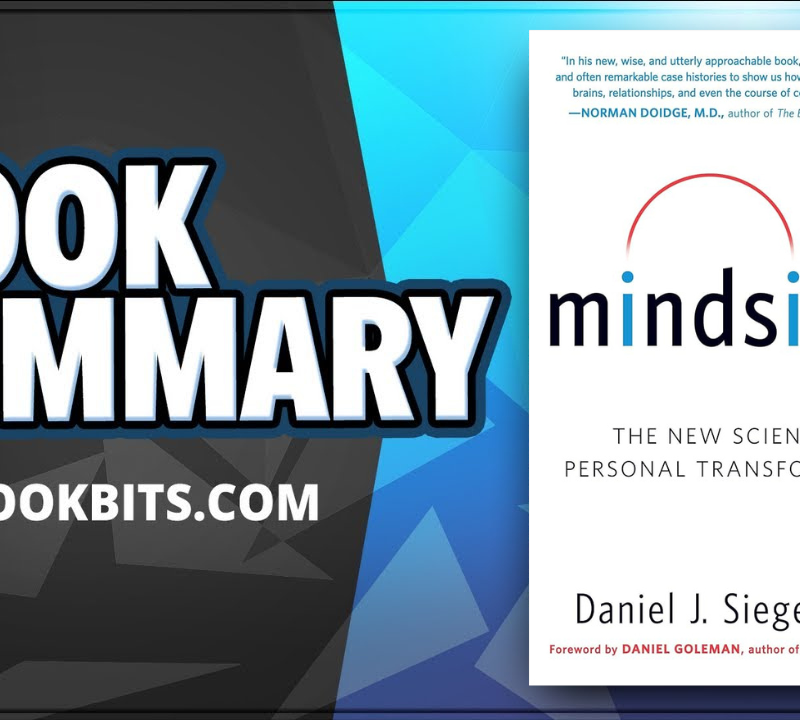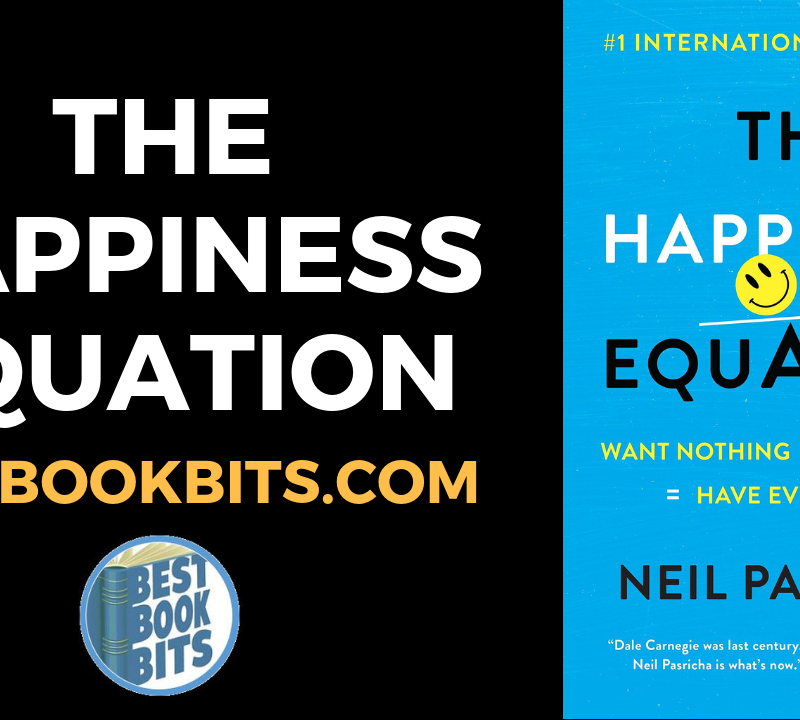★DOWNLOAD THIS FREE PDF SUMMARY HERE
? MY FREE BOOK TO LIVING YOUR DREAM LIFE”
? SPONSOR BESTBOOKBITS BY USING PATREON
? SUPPORT BESTBOOKBITS BY CLICKING THE LINKS BELOW
- 150 PDF Summaries
- Coaching Program
- Subscribe to My Channel
- Website
- Spotify
- Book Club
- Mailing List
Grit by Angela Duckworth is a psychological examination of the concept of Grit. A combination of passion and perseverance. She discusses how effort is often ignored, outshone by ‘talent’. When really, what is more important in life is effort. Duckworth shares personal lessons learnt, real life examples and useful tips for raising your own children to be ‘gritty’. This book is a really good in-depth discussion about the psychology of talent, effort and achievement.
GRIT
The highly accomplished are paragons of perseverance. For most, there is no realistic expectation of ever catching up to their ambitions. In their own eyes, they are never good enough. They are the opposite of complacent. And yet, in a very real sense, they are satisfied being unsatisfied. Chasing something of unparalleled interest and importance, and it is the chase—as much as the capture—that is gratifying. Even if it is boring, or frustrating, or even painful, they don’t dream of giving up. Their passion is enduring.
A combination of passion and perseverance makes high achievers special. High achievers have grit.
DISTRACTED BY TALENT
Why do we place such emphasis on talent? And why fixate on the extreme limits of what we might do when, in fact, most of us are at the very beginning of our journey, so far, far away from those outer bounds?
And why do we assume that it is our talent, rather than our effort, that will decide where we end up in the very long run?
Focus on talent distracts us from something that is at least as important. Effort.
EFFORT COUNTS TWICE
It seems that when anyone accomplishes a feat worth writing about, we rush to anoint that individual as extraordinarily “talented.” If we overemphasize talent, we underemphasize everything else.
We want to believe that Mark Spitz was born to swim in a way that none of us were and that none of us could. We don’t want to sit on the pool deck and watch him progress from amateur to expert. We prefer our excellence fully formed. We prefer mystery to mundanity.
If we think of genius as something magical, we are not obliged to compare ourselves and find ourselves lacking. To call someone ‘divine’ means: ‘here there is no need to compete.’
From talent to achievement
Talent is how quickly your skills improve when you invest effort. Achievement is what happens when you take your acquired skills and use them. Of course, your opportunities—for example, having a great coach or teacher—matter tremendously, too, and maybe more than anything about the individual.
This theory doesn’t address these outside forces, nor does it include luck. It’s about the psychology of achievement, but because psychology isn’t all that matters, it’s incomplete, but still relevant.
Talent—how fast we improve in skill—absolutely matters. But effort factors into the calculations twice, not once. Effort builds skill. At the very same time, effort makes skill productive.
The exercise example
About 40 percent of people who buy home exercise equipment later say they ended up using it less than they’d expected. How hard we push ourselves in a given workout matters, of course, but the bigger impediment to progress is that sometimes we stop working out altogether.
As any coach or athlete will tell you, consistency of effort over the long run is everything. How often do people start down a path and then give up on it entirely? How many treadmills are gathering dust in basements across the country?
Many of us, it seems, quit what we start far too early and far too often. Even more than the effort a gritty person puts in on a single day, what matters is that they wake up the next day, and the next, ready to get on that treadmill and keep going.
Strivers
Someone twice as talented but half as hardworking as another person might reach the same level of skill but still produce dramatically less over time.
This is because as strivers are improving in skill, they are also employing that skill— to make pots, write books, direct movies, give concerts. If the quality and quantity of those pots, books, movies, and concerts are what count, then the striver who equals the person who is a natural in skill by working harder will, in the long run, accomplish more.
TALENT AND SKILL
The separation of talent and skill, is one of the greatest misunderstood concepts for people who are trying to excel, who have dreams, who want to do things. Talent you have naturally. Skill is only developed by hours and hours and hours of beating on your craft.
Skill is not the same thing as achievement, either. Without effort, your talent is nothing more than your unmet potential. Without effort, your skill is nothing more than what you could have done but didn’t. With effort, talent becomes skill and, at the very same time, effort makes skill productive.
GOAL HIERARCHY
At the bottom of this hierarchy are our most concrete and specific goals— the tasks we have on our short-term to- do list: I want to get out the door today by eight a.m. These low-level goals exist merely as means to ends. We want to accomplish them only because they get us something else we want.
In contrast, the higher the goal in this hierarchy, the more abstract, general, and important it is. The higher the goal, the more it’s an end in itself, and the less it’s merely a means to an end.
The top-level goal is not a means to any other end. It is, instead, an end in itself. Think of this top-level goal as a compass that gives direction and meaning to all the goals below it.
Grit Goals
Grit is about holding the same top-level goal for a very long time. It is so interesting and important that it organizes a great deal of your waking activity. In very gritty people, most mid-level and low-level goals are, in some way or another, related to that ultimate goal. In contrast, a lack of grit can come from having less coherent goal structures.
GRIT GROWS
To the question of whether we get grit from our DNA, there is a short answer and a long one. The short answer is “in part.” The long answer is, well, more complicated. Some of the variation in grit in the population can be attributed to genetic factors, and the rest can be attributed to experience.
It’s possible that adults in their seventh decade of life are grittier because they grew up in a very different cultural era, perhaps one whose values and norms emphasized sustained passion and perseverance more than has been the case recently.
Alternatively, it’s possible these age trends have nothing to do with generational changes in grit. Instead, what the data may be showing is how people mature over time.
Four elements of grit
- Passion begins with intrinsically enjoying what you do. Remember that interests must be triggered again and again and again. Find ways to make that happen. And have patience. The development of interests takes time.
- The capacity to practice. One form of perseverance is the daily discipline of trying to do things better than we did yesterday.
- What ripens passion is the conviction that your work matters.
- Hope is a rising-to-the-occasion kind of perseverance.
GROWING GRIT FROM THE OUTSIDE
Authoritative parenting or wise parenting – parents in this quadrant are accurate judges of the psychological needs of their children. They appreciate that children need love, limits, and latitude to reach their full potential. Their authority is based on knowledge and wisdom, rather than power.
Growing up with support, respect, and high standards confers a lot of benefits, one of which is especially relevant to grit—in other words, wise parenting encourages children to emulate their parents.
Imitation or emulation
To a certain extent, of course, young children imitate their mothers and fathers. When we have nothing else to go by, what other choice do we have, really, than to mimic the accents, habits, and attitudes of the people around us?
And yet, there’s a world of difference between imitation and emulation. As we grow older, we develop the capacity to reflect on our actions and pass judgment on what we admire and disdain in others.
It’s indeed remarkable how many paragons of grit have told me, with pride and awe, that their parents are their most admired and influential role models. And it’s just as telling that so many paragons have, in one way or another, developed very similar interests to those of their parents. Clearly, these exemplars of grit grew up not just imitating their parents but also emulating them.
Grit parents
This logic leads to the speculative conclusion that not all children with psychologically wise parents will grow up to be gritty, because not all psychologically wise parents model grittiness. Though they may be both supportive and demanding, upper-right- quadrant moms and dads may or may not show passion and perseverance for long-term goals.
If you want to bring forth grit in your child, first ask how much passion and perseverance you have for your own life goals. Then ask yourself how likely it is that your approach to parenting encourages your child to emulate you. If the answer to the first question is “a great deal,” and your answer to the second is “very likely,” you’re already parenting for grit.
THE PLAYING FIELDS OF GRIT
School’s hard, but for many kids it’s not intrinsically interesting. Texting your friends is interesting, but it’s not hard. But ballet? Ballet can be both. In-the-moment experience is one thing, but what about long-term benefits? Do extracurriculars pay off in any measurable way?
There are countless research studies showing that kids who are more involved in extracurriculars fare better on just about every conceivable metric —they earn better grades, have higher self-esteem, are less likely to get in trouble and so forth.
But what about grit? What about accomplishing something that takes years, as opposed to months, of work? If grit is about sticking with a goal for the long-term, and if extracurricular activities are a way of practicing grit, it stands to reason that they’re especially beneficial when we do them for more than a year.
The hard thing rule
- Everyone has to do a hard thing, including Mum and Dad – something that requires daily deliberate practice.
- You can quit, but you can’t quit till the season is over or some other natural ending has occurred.
- YOU get to pick your hard thing. Not your parents, or elder siblings, or friends.
- When you reach high school, you must commit for 2 years.
For parents who would like to encourage grit without obliterating their children’s capacity to choose their own path, I recommend the Hard Thing Rule.
A CULTURE OF GRIT
Whether we realize it or not, the culture in which we live, and with which we identify, powerfully shapes just about every aspect of our being. At its core, a culture is defined by the shared norms and values of a group of people.
The bottom line on culture and grit is: If you want to be grittier, find a gritty culture and join it. If you’re a leader, and you want the people in your organization to be grittier, create a gritty culture.
Influence
In the long run, culture has the power to shape our identity. Over time and under the right circumstances, the norms and values of the group to which we belong become our own. We internalize them. We carry them with us. The way we do things around here and why eventually becomes The way I do things and why.
Vision
If you create a vision for yourself and stick with it, you can make amazing things happen in your life. Once you have done the work to create the clear vision, it is the discipline and effort to maintain that vision that can make it all come true. The two go hand in hand. The moment you’ve created that vision, you’re on your way, but it’s the diligence with which you stick to that vision that allows you to get there.
CONCLUSION
What we accomplish in the marathon of life depends tremendously on our grit—our passion and perseverance for long-term goals. An obsession with talent distracts us from that simple truth.
On your own, you can cultivate your own grit from the inside out. You can cultivate interests, develop and habit of daily practice and work on a purpose beyond yourself.
You can also grow your grit “from the outside in.” Parents, coaches, teachers, bosses, mentors, friends—developing your personal grit depends critically on other people.
To be gritty is to keep putting one foot in front of the other. To be gritty is to hold fast to an interesting and purposeful goal. To be gritty is to invest, day after week after year, in challenging practice. To be gritty is to fall down seven times, and rise eight.”
★DOWNLOAD THIS FREE PDF SUMMARY HERE
? MY FREE BOOK TO LIVING YOUR DREAM LIFE”
? SPONSOR BESTBOOKBITS BY USING PATREON
? SUPPORT BESTBOOKBITS BY CLICKING THE LINKS BELOW













